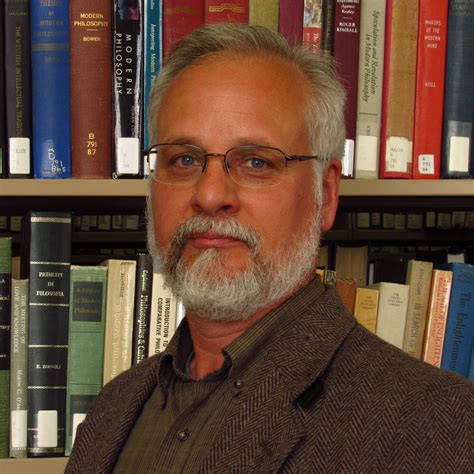A Quote by Steven Pinker
In the past two decades anthropologists have gathered data on life and death in pre-state societies rather than accepting the warm and fuzzy stereotypes. What did they find? In a nutshell: Hobbes was right, Rousseau was wrong.
Related Quotes
As with Hobbes, we see again, the power of fiction. Rousseau's acount of natural man was no more real than Hobbes's, but following the same pattern, once it became the accepted story of human origins, it thereby exercised the power of a self-fulfilling prophecy. In imagining Rousseau to be right, we have become what Rousseau imagined.
... negative feelings are not true feelings at all; rather, they are your thoughts about something, based always on the previous experience of yourself and others. You will not find Truth in your past data, only past data that is based on other past data that is based on other past data, and so forth. Forget your "past experience" and look directly at the experience you are having. Right Here, Right Now. There is your Truth.
By 'coming to terms with life' I mean: the reality of death has become a definite part of my life; my life has, so to speak, been extended by death, by my looking death in the eye and accepting it, by accepting destruction as part of life and no longer wasting my energies on fear of death or the refusal to acknowledge its inevitability. It sounds paradoxical: by excluding death from our life we cannot live a full life, and by admitting death into our life we enlarge and enrich it.
The greatest artists, saints, philosophers, and, until quite recent times, scientists... have all assumed that the New Testament promise of eternal life is valid.... I'd rather be wrong with Dante and Shakespeare and Milton, with Augustine of Hippo and Francis of Assisi, with Dr. Johnson, Blake, and Dostoevsky than right with Voltaire, Rousseau, the Huxleys, Herbert Spencer, H. G. Wells, and Bernard Shaw.
Any time scientists disagree, it's because we have insufficient data. Then we can agree on what kind of data to get; we get the data; and the data solves the problem. Either I'm right, or you're right, or we're both wrong. And we move on. That kind of conflict resolution does not exist in politics or religion.
In a study we did of bereavement, we found that rather impressive numbers of widows and widowers had not simply gone back to their pre-loss functioning, but grown. This was due to a kind of increased existential awareness that resulted from this confrontation with the death of another. And I think it brought them in touch with their own death, so they began to experience a kind of preciousness to life that comes with an experience of its transiency.
We're at a historical juncture: A growing number of people are declaring what has been achieved over the past decades in Europe to be wrong. They want to return to the nation-state. Sometimes there is even a blood and soil rhetoric that for me is starkly reminiscent of the interwar years of the past century, whose demons we are still all too familiar with.
I think most generations tend to learn the lesson of war the hard way. There is a deep attraction to the empowerment. Freud is right: societies either become locked in a collective embrace of Eros, as individuals do, or a collective embrace of Thanatos, the death instinct. They swing between the two. The notion that societies are naturally prone toward self-preservation is wrong. Self-annihilation can be deeply addictive, intoxicating, enticing. So I take a darker view of human nature, that war is probably always going to be with us. I think history bears me out.



































